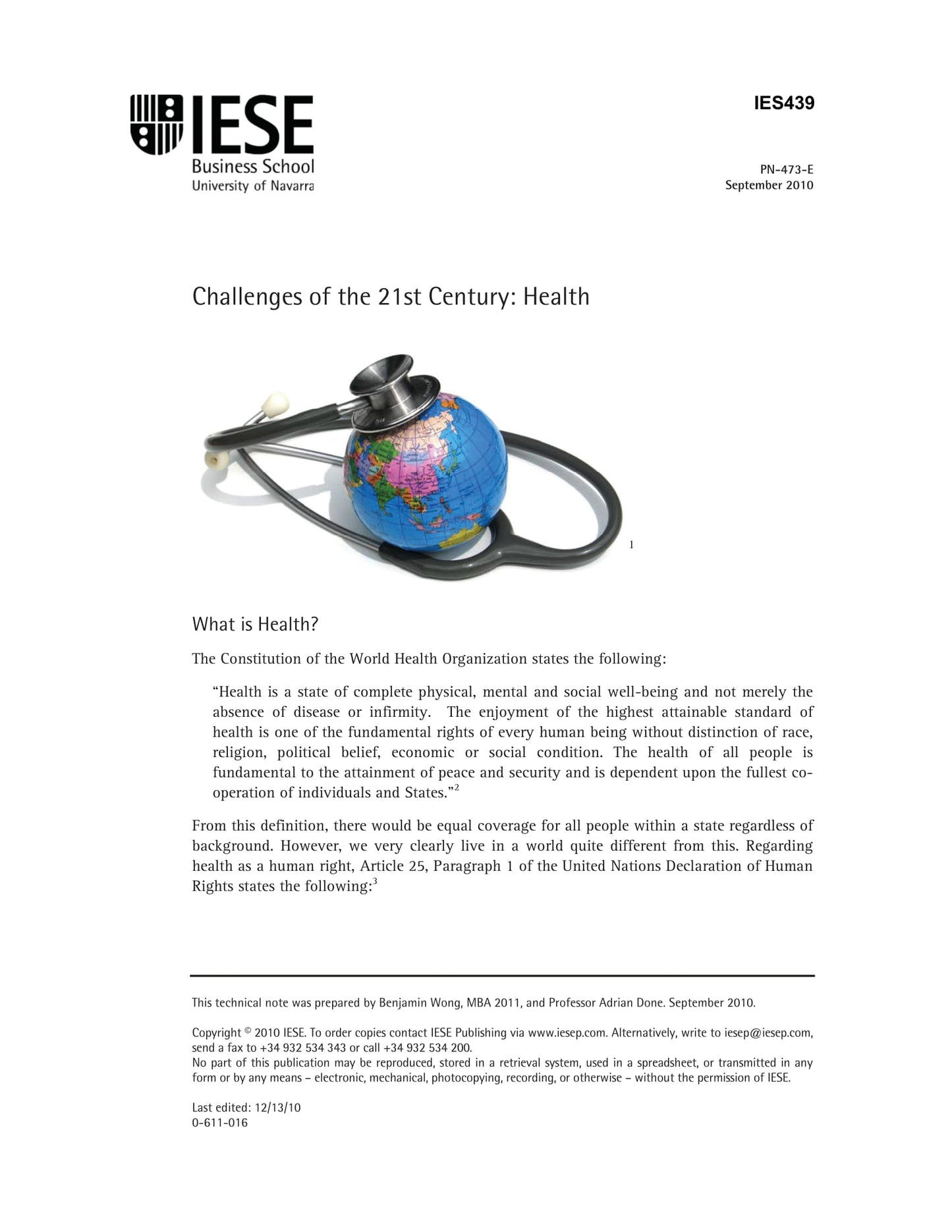Challenges of the 21st Century: Health
受取状況を読み込めませんでした
The Constitution of the World Health Organization states the following:Health is a state of complete physical, mental and social well-being and not merely the absence of disease or infirmity. The enjoyment of the highest attainable standard of health is one of the fundamental rights of every human being without distinction of race, religion, political belief, economic or social condition. The health of all people is fundamental to the attainment of peace and security and is dependent upon the fullest co-operation of individuals and States.From this definition, there would be equal coverage for all people within a state regardless of background. However, it is very simple to see that we live in a world quite different from this. Regarding health as a human right, Article 25, Paragraph 1 of the United Nations Declaration of Human Rights states the following:Everyone has the right to a standard of living adequate for the health and well-being of himself and of his family, including food, clothing, housing and medical care and necessary social services...If health is a human right, why are so many people not covered? Is it the responsibility of the State? How attainable is this ideal and how relevant is it? Most would agree that a high standard of healthcare in a country is key to security and peace, but globalization is putting pressure on the social cohesion of many countries. Diseases and outbreaks are emerging and spreading with unprecedented speed. With economic prosperity which lifted millions out of poverty, comes a new set of healthcare challenges. As the world changes, health systems need to adapt in order to cope with this environment. Therefore, healthcare is intertwined with many other global issues, including demographics, war/terrorism, geopolitics, and the constantly changing social and economic paradigms.
【書誌情報】
ページ数:16ページ
サイズ:A4
商品番号:HBSP-IES439
発行日:2012/2/22
登録日:2015/1/14


